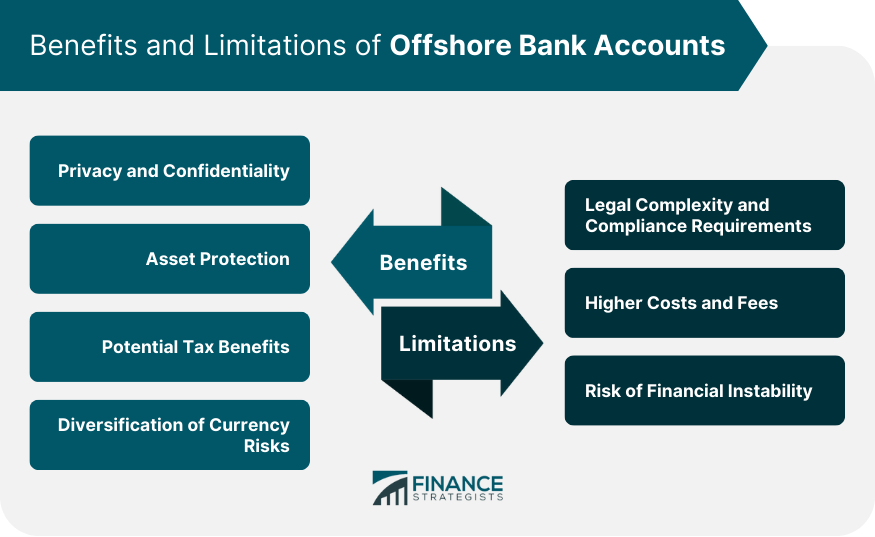Debunking Offshore Company Formations: Just How They Operate and What to Expect
Offshore firm formations can seem facility and enigmatic. Offshore Company Formations. These entities, usually developed for tax obligation benefits and privacy, operate under distinct legal structures. Entrepreneurs might discover themselves navigating through a puzzle of regulations and conformity needs. Recognizing the ins and outs is important for success. What are the genuine benefits? What are the possible risks? A closer evaluation discloses the nuances that might affect decision-making considerably
Understanding Offshore Companies: Types and meanings
Offshore firms are entities developed in a jurisdiction beyond an individual's or service's primary nation of residence, often for purposes connected to tax obligation optimization, asset protection, or governing advantages. These firms can take various kinds, consisting of restricted obligation business (LLCs), global company firms (IBCs), and offshore counts on. Each kind serves certain functions and attract various demands.
Restricted liability business supply proprietors with defense from personal responsibility, while worldwide business companies are preferred for their flexibility and minimal coverage demands. Offshore counts on, on the other hand, are utilized largely for estate planning and asset defense.
The choice of territory substantially influences the firm's procedures, as some places use extra desirable legal structures and personal privacy defenses. Offshore Company Formations. Recognizing the distinctions in between these kinds is crucial for companies and individuals considering offshore structures, as each option carries different ramifications for governance and compliance
The Advantages of Establishing an Offshore Business
Establishing an overseas firm can offer various advantages, particularly for those seeking to boost their monetary approaches and shield their properties. One significant advantage is tax optimization; many jurisdictions supply desirable tax prices or exemptions, enabling companies to keep more profits. In addition, overseas companies can provide a layer of privacy, shielding the identities of proprietors and shareholders from public examination.
Another benefit is asset defense. By placing properties in an offshore entity, individuals can safeguard their riches from possible lawful cases or political instability in their home countries. This framework likewise assists in worldwide company operations, enabling much easier access to international markets and varied customers.
The facility of an offshore firm can improve reliability and reputation, appealing to clients that value international business practices. Overall, these benefits make offshore business formations an eye-catching alternative for individuals and organizations going for economic growth and security.
Trick Considerations Before Developing an Offshore Entity
Prior to forming an offshore entity, several critical factors have to be evaluated. Lawful conformity needs, tax obligation ramifications and benefits, along with jurisdiction choice, play a considerable duty in the decision-making process. Understanding these factors to consider can aid organizations and individuals navigate the complexities of overseas firm formations properly.

Legal Compliance Needs
When taking into consideration the development of an offshore entity, understanding lawful compliance demands is crucial to guarantee adherence to both international and local laws. Prospective entrepreneur have to acquaint themselves with laws controling company enrollment, reporting responsibilities, and operational standards in the picked jurisdiction. This consists of validating the lawful needs for investors and supervisors, along with guaranteeing conformity with anti-money laundering (AML) and know-your-customer (KYC) policies. Additionally, organizations must remain familiar with any licensing requirements specific to their industry. Involving local legal and economists can supply valuable understandings, guaranteeing that all necessary documentation is prepared and sent properly. Eventually, complete understanding of legal conformity helps reduce threats and fosters a sustainable overseas operation.
Tax Effects and Benefits
Numerous local business owner think about the tax obligation implications and advantages of forming an offshore entity as a crucial variable in their decision-making procedure. Offshore business can provide considerable tax obligation advantages, such as minimized business tax prices, exemption from particular local tax obligations, and the ability to delay tax obligations on foreign income. These advantages can result in enhanced profitability and capital, making overseas structures appealing for global service procedures. Furthermore, the possibility for tax obligation treaties may better decrease tax obligations. However, it is essential for local business owner to comprehend the complexities included, including conformity with both local and worldwide tax obligation guidelines. Engaging with tax experts is a good idea to browse these intricacies properly and assure optimal tax planning strategies.
Territory Selection Aspects
What aspects should one think about when selecting a territory for overseas firm formation? Key considerations include tax obligation performance, governing atmosphere, and political stability. Territories with desirable tax obligation programs can substantially influence productivity. The regulatory landscape ought to provide flexibility and ease of conformity, permitting effective service procedures. Political security is essential, as it guarantees the safety and security of possessions and connection of operations. Furthermore, the credibility of the jurisdiction can impact client trust and organization relationships. Access to financial services and the accessibility of specialist assistance services are also crucial. Comprehending neighborhood legislations regarding ownership, privacy, and reporting demands is crucial to determine that the overseas entity lines up with the business owner's objectives and lawful obligations.
Possession The Process of Setting Up an Offshore Company
Establishing up an offshore firm entails a series of calculated actions that need careful planning and compliance with international laws. An individual need to select an ideal jurisdiction that lines up with their business objectives and uses beneficial tax obligation learn the facts here now advantages. Adhering to jurisdiction option, the next action is to choose a distinct company name and prepare the essential paperwork, consisting of write-ups of consolidation and investor agreements.
When the documents is ready, it has to be sent to the relevant authorities together with the needed fees. After authorization, the business will certainly receive a certificate of incorporation, officially developing its legal existence. The specific need to after that open a company checking account to assist in financial purchases.
Keeping an overseas company includes adhering to ongoing compliance needs, such as yearly coverage and tax obligation commitments, which differ by territory. Recognizing each action is important for an effective offshore firm development.

Regulatory and legal Framework for Offshore Firms
While developing an offshore firm can provide significant benefits, it is important to maneuver via the complicated lawful and regulative framework that regulates such entities. Each jurisdiction has its very own set of regulations that dictate every little thing from business development to tax and conformity demands. These policies are made to avoid prohibited activities, such as cash laundering and tax evasion, and usually need comprehensive documents and transparency.
Trick elements of this structure consist of the requirement of appointing regional supervisors, preserving a licensed office, and sticking to annual reporting commitments. Additionally, lots of jurisdictions impose details licensing requirements for particular business tasks. Recognizing these lawful specifications is essential for making sure conformity and mitigating dangers related to charges or lawful conflicts. Involving with lawful professionals who specialize in offshore firms can aid in maneuvering through this complex landscape, ultimately assisting in a compliant and effective overseas service operation.
Common False Impressions Concerning Offshore Firms
Lots of people hold false impressions regarding offshore companies, commonly corresponding them with tax evasion and illegal activities. It is crucial to acknowledge that these entities can operate lawfully within a structure designed for reputable service methods. Clearing up the lawful standing of overseas business can help eliminate these misconceptions and advertise a much more accurate understanding of their purpose.
Tax Obligation Evasion Misconceptions
Regardless of the growing popularity of offshore business, mistaken beliefs concerning their usage for tax evasion linger. Several individuals incorrectly believe that developing an overseas entity is exclusively a way to avoid taxes. However, offshore firms are usually utilized for genuine purposes, such as property defense, international business expansion, and financial investment diversification. The perception that all overseas activities correspond to illicit tax evasion forgets the intricacies of worldwide tax policies and compliance requirements. In addition, the huge bulk of overseas territories have implemented measures to combat tax evasion, advertising openness and info exchange. This mischaracterization can discourage legit services and investors from exploring the potential benefits of overseas firm formations while continuing an adverse stigma surrounding these entities.
Lawful Status Clarified
The legal condition of offshore firms is frequently misunderstood, causing a selection of misconceptions. Many think these entities run in a legal gray location, thinking they are inherently unlawful or underhanded. In truth, offshore firms are legit services formed under the laws of details territories, made for different factors, including asset security and market growth. An additional usual misunderstanding is that overseas companies avert taxes totally; nevertheless, they are subject to the guidelines and tax obligations of their home countries. Furthermore, some individuals believe that overseas companies can be easily manipulated for cash laundering or illegal activities. While misuse can take place, most jurisdictions impose stringent conformity and transparency legislations to reduce such dangers, making certain that offshore business operate within legal structures.

Taking care of and Operating Your Offshore Firm Properly
Properly handling and running an overseas business needs a strategic method that balances compliance with local regulations and the quest of organization goals. Successful offshore monitoring includes recognizing the jurisdiction's tax obligation legislations, reporting requirements, and functional policies. Employing regional professionals, such as accountants and lawful advisors, can supply invaluable insights right into traversing these intricacies.
Furthermore, developing clear interaction channels and operational procedures is important for preserving performance. Using innovation for job management and cooperation can boost efficiency, while look here routine efficiency examines guarantee alignment with strategic objectives.
Moreover, preserving robust monetary documents is crucial, as transparency cultivates depend on with stakeholders and adhere to worldwide criteria. Being versatile to changes in regulations or market problems enables offshore companies to pivot properly, guaranteeing long-term sustainability and development. By sticking to these principles, my latest blog post entrepreneur can make best use of the benefits of their overseas endeavors while mitigating risks.
Often Asked Inquiries
Just how much Does It Price to Maintain an Offshore Business Annually?
The cost to preserve an offshore business yearly varies significantly, generally ranging from $1,000 to $5,000, depending on territory, solutions required, and compliance obligations. It is necessary to take into consideration added charges for certain requirements.
Can I Open Up a Financial Institution Account for My Offshore Company Remotely?
Opening up a checking account for an overseas business from another location is generally feasible. Demands may vary by territory, frequently necessitating documents and confirmation processes, which can make complex the remote application experience for individuals.
Exist Particular Countries Recognized for Easier Offshore Company Formations?
Particular countries, such as Belize, Seychelles, and the British Virgin Islands, are renowned for their structured procedures and favorable guidelines relating to overseas business formations, attracting entrepreneurs seeking performance and privacy in service procedures.
What Kinds of Businesses Are Best Matched for Offshore Firms?
Certain organizations, such as working as a consultant, shopping, and investment firms, commonly gain from offshore business because of tax advantages, personal privacy, and governing versatility - Offshore Company Formations. These entities typically grow in jurisdictions that promote desirable business settings
Exactly How Can I Guarantee Conformity With Local Regulations When Running Offshore?
To ensure compliance with local legislations when running offshore, it is necessary to involve lawful professionals, perform thorough research on jurisdiction laws, and maintain clear financial records, thus minimizing threats connected with non-compliance.
